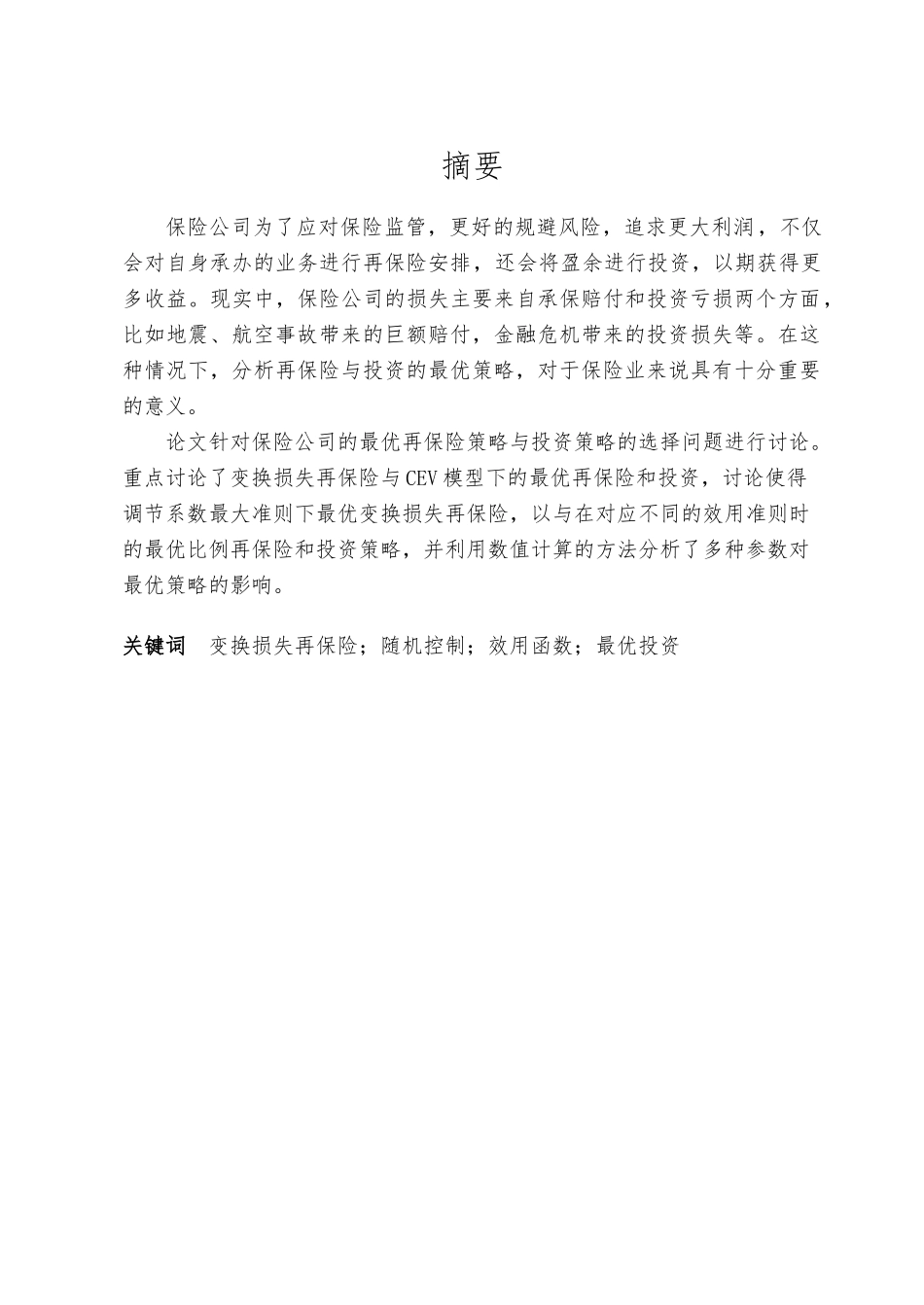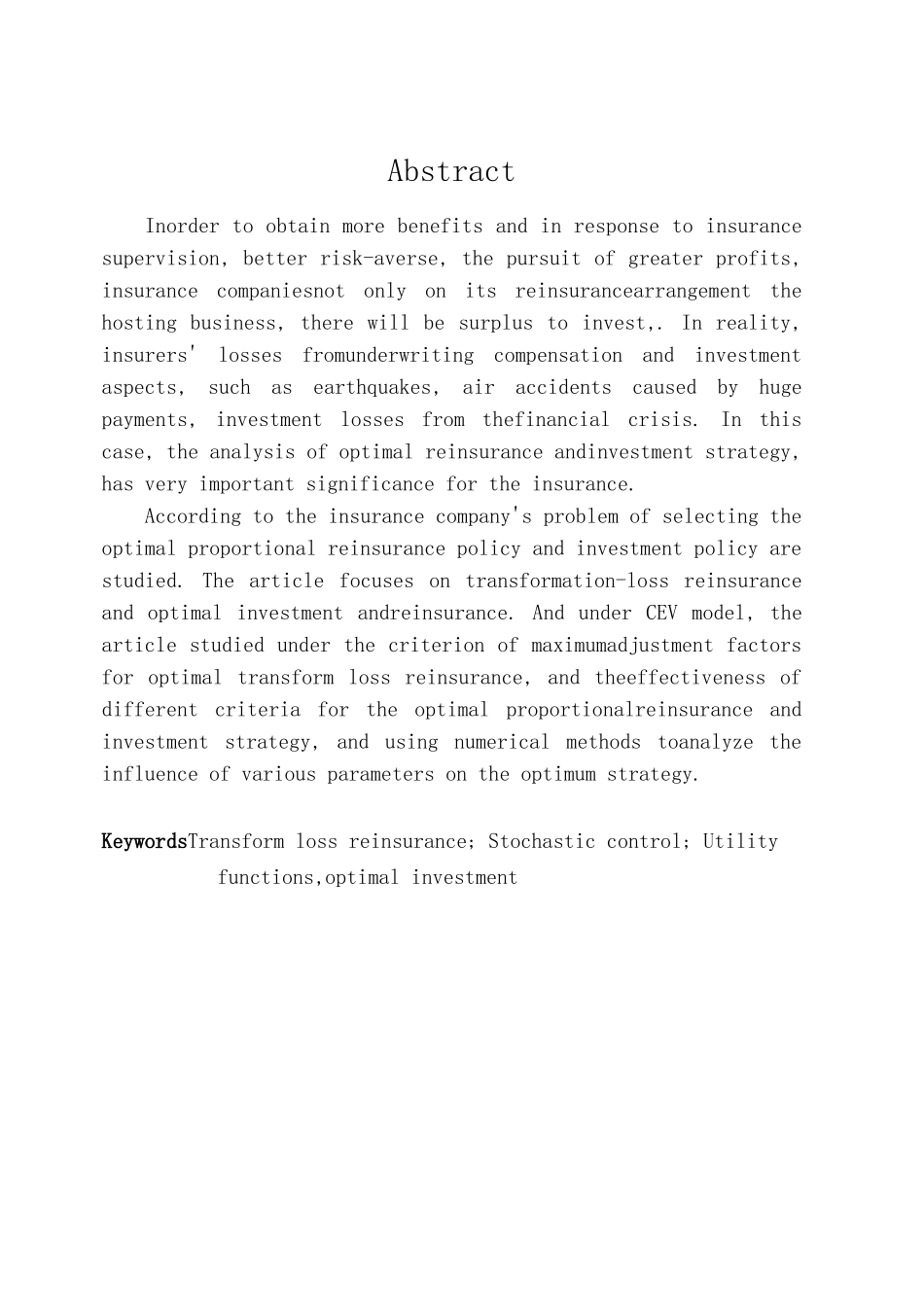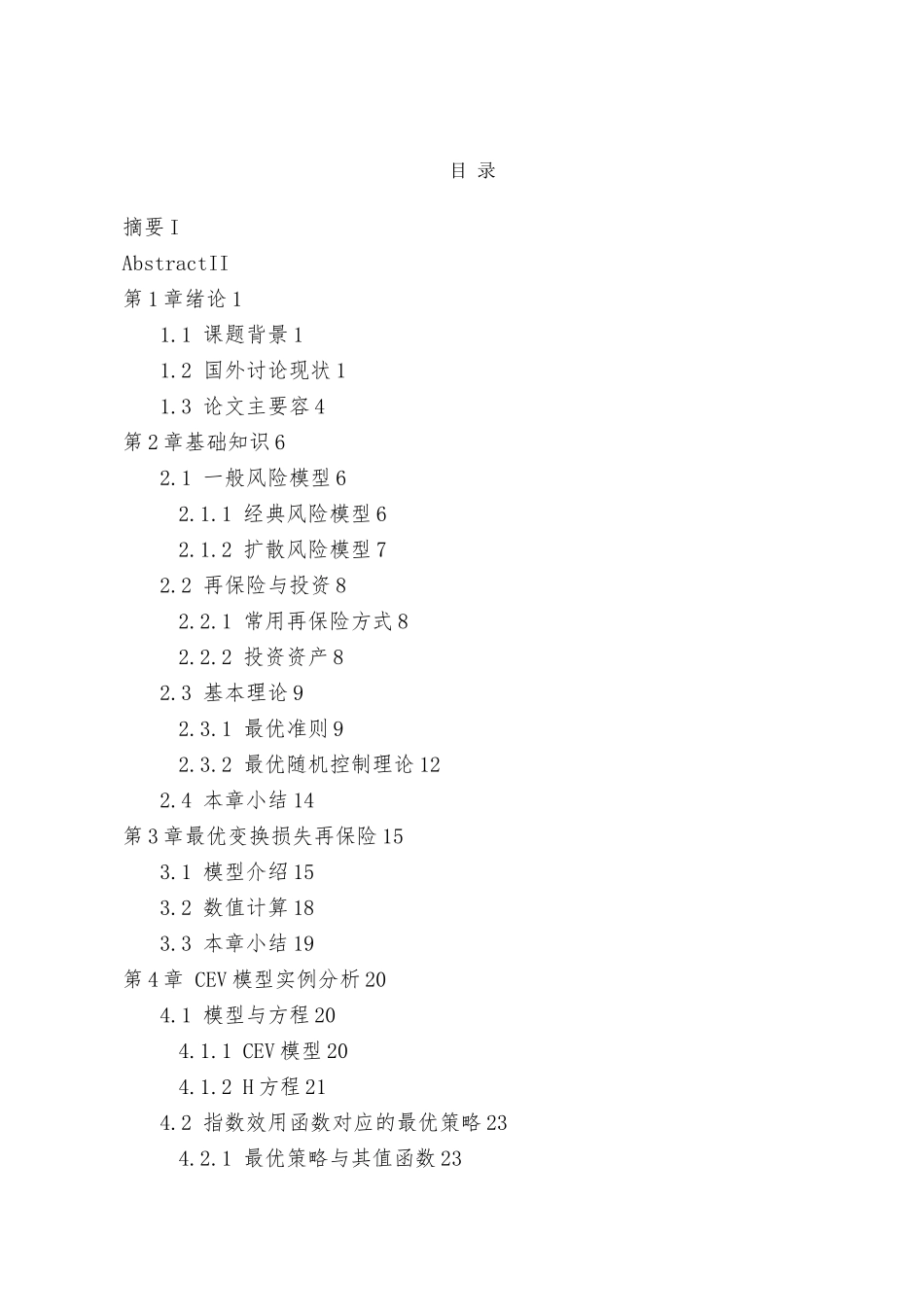摘要保险公司为了应对保险监管,更好的规避风险,追求更大利润,不仅会对自身承办的业务进行再保险安排,还会将盈余进行投资,以期获得更多收益。现实中,保险公司的损失主要来自承保赔付和投资亏损两个方面,比如地震、航空事故带来的巨额赔付,金融危机带来的投资损失等。在这种情况下,分析再保险与投资的最优策略,对于保险业来说具有十分重要的意义。论文针对保险公司的最优再保险策略与投资策略的选择问题进行讨论。重点讨论了变换损失再保险与 CEV 模型下的最优再保险和投资,讨论使得调节系数最大准则下最优变换损失再保险,以与在对应不同的效用准则时的最优比例再保险和投资策略,并利用数值计算的方法分析了多种参数对最优策略的影响。关键词 变换损失再保险;随机控制;效用函数;最优投资AbstractInorder to obtain more benefits and in response to insurance supervision, better risk-averse, the pursuit of greater profits, insurance companiesnot only on its reinsurancearrangement the hosting business, there will be surplus to invest,. In reality, insurers' losses fromunderwriting compensation and investment aspects, such as earthquakes, air accidents caused by huge payments, investment losses from thefinancial crisis. In this case, the analysis of optimal reinsurance andinvestment strategy, has very important significance for the insurance.According to the insurance company's problem of selecting the optimal proportional reinsurance policy and investment policy are studied. The article focuses on transformation-loss reinsurance and optimal investment andreinsurance. And under CEV model, the article studied under the criterion of maximumadjustment factors for optimal transform loss reinsurance, and theeffectiveness of different criteria for the optimal proportionalreinsurance and investment strategy, and using numerical methods toanalyze the influence of various parameters on the optimum strategy.KeywordsTransform loss reinsurance; Stochastic control; Utility fun...


